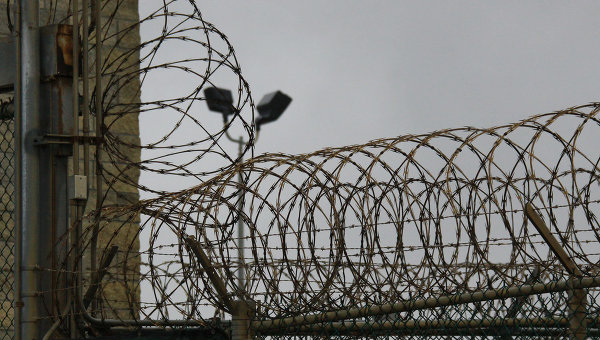Ukraine’s Parliament slips in dangerous carte blanche for blocking torture investigations

Civic organizations have expressed outrage over a dangerous norm sneaked in when nobody was looking. The new procedure introduced could, they warn, lead to a long period where offences committed within the prison system are not investigated at all, while also seriously compromising investigations into allegations of torture and ill-treatment by prison staff.
According to the Reanimation Package of Reforms coalition [RPR], this is not the first time that an unrelated norm has suddenly appeared after a draft law has passed through its first reading. The adoption of a Law on the High Council of Justice on Dec 21 was long overdue and needed to comply with amendments to the Constitution which had come into force a month earlier.
The bill in its final version contained Article 216.6 which introduces ‘investigative bodies of the State Penitentiary Service’. RPR points out that one of the problems is the inevitable paralysis to the present system since there are at present no such bodies. There will be nobody to investigate actual offences until these are created.
There is worse. Andriy Didenko from the Kharkiv Human Rights Group is especially frustrated by the move since he and others have long campaigned for the removal of the operational units which now exist. These purportedly react to offences committed in prison, but in fact often engage in extortion and set up situations of conflict to extract profit.
One of the problems lies in a norm which has inexplicably been carried over from Soviet times. Article 391 of Ukraine’s Criminal Code allows for an extra sentence of up to three years for what is termed persistently disobeying the legitimate demands of prison authorities, or any other form of resistance. This is measured by whether a prisoner has, for example, been placed in a punishment cell or similar penalties more than once within the space of a year.
It all depends on what is deemed an ’offence’ deserving such a penalty and the scope for abuse is enormous. In Soviet times the analogous norm was used to add sentences to dissidents. The mere possibility that the norm could be applied gives prison staff dangerous leverage over prisoners, and cases have been reported, Didenko says, where the article was applied against people who had complained of ill-treatment. An attempt to remove the norm was rejected by parliament in July 2016.
Now, instead of getting rid of bodies that have availed themselves of the opportunity for abuse, there will also be ‘investigative bodies’.
RPR points out that the State Penitentiary Service is currently being dissolved, with its role being passed to the Justice Ministry. This will mean that in the civil Ministry, “investigative units will appear in addition to the current militarized operational units, the security units, as well as a special purpose unit.”
As well as the delay caused by the need to set this up, the new situation will inevitably lead to offences committed by prison officials being covered up. The actions of officials will, after all, be ‘investigated’ by their colleagues, working in the same Penitentiary Service.
The new situation will violate the principles of independent, transparent and effective investigation of all allegations of torture, as demanded, for example, by the European Committee for the Prevention of Torture. The ‘investigations’ will not only be carried out by people within the same prison service, but will also not be subject to any public scrutiny.
RPR points out also that this will restrict the jurisdiction of the National Anti-Corruption Bureau since the task of investigating suspected crimes committed by the Justice Minister as head of the Penitentiary Service and other officials responsible for it would be handed to investigators of the same Service.
RPR has called on the Justice Ministry to refrain from creating such investigation units and on the Verkhovna Rada to immediately add amendments to the Criminal Procedure Code to exclude any such units within the Penitentiary Service from the list of bodies empowered to carry out pre-trial investigations.
It would surely, however, be best to remove the norm, and for parliament to understand that commitment to European integration involves freeing Ukraine from anachronistic norms, not trying to sneak more in unnoticed.





